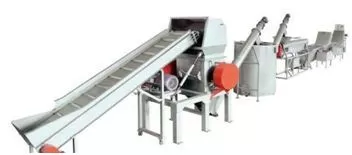Imagine a world where plastic waste is no longer a problem but a resource. Sounds too good to be true, right? However, the Netherlands is making it a reality. How are they doing it, and what can we learn from their approach to plastic recycling?

The Netherlands is a global leader in plastic recycling. Their success stems from a combination of innovative policies, cutting-edge technologies, and public participation. By transforming plastic waste into valuable resources, they are not only reducing environmental pollution but also creating economic opportunities.
Curious about the details? Let’s explore the fascinating journey of the Dutch plastic recycling industry and see how they are turning trash into treasure.
What Makes the Netherlands a Leader in Plastic Recycling?
The Netherlands has implemented a robust and effective plastic recycling system. Their approach is comprehensive, covering everything from waste collection to processing and reuse.
How Does Their Waste Management System Work?
The Dutch waste management system is a well-oiled machine. It begins with an efficient collection system that ensures plastic waste is sorted and processed properly.
Efficient Collection
In the Netherlands, waste collection is a meticulous process. Households and businesses separate their waste into different categories, making it easier to recycle plastic efficiently.
Advanced Processing Facilities
Once collected, the plastic waste is sent to state-of-the-art processing facilities. These facilities use advanced technologies to sort, clean, and process the plastic into reusable materials.
What Technologies Are Used in Plastic Recycling?
Optical Sorting
One of the key technologies used in Dutch recycling facilities is optical sorting. This technology uses sensors to identify and sort different types of plastic, ensuring a high degree of accuracy.
Chemical Recycling
The Netherlands is also a pioneer in chemical recycling, which breaks down plastic into its basic chemical components. This allows for the recycling of plastics that are difficult to process using traditional methods.
What Role Do Government Policies Play?
Legislation and Regulation
The Dutch government has enacted strict legislation and regulations to support plastic recycling. These laws ensure that plastic waste is managed responsibly and encourage businesses to adopt sustainable practices.
Financial Incentives
To further promote recycling, the government provides financial incentives for companies that use recycled materials. These incentives include tax breaks and subsidies, making it economically viable for businesses to go green.
How Does Public Participation Contribute?
Education and Awareness
Public participation is a cornerstone of the Dutch recycling system. Through extensive education and awareness campaigns, the Dutch government has cultivated a culture of recycling among its citizens.
Community Involvement
Communities across the Netherlands are actively involved in recycling initiatives. Local events, workshops, and competitions encourage people to recycle more and reduce plastic waste.
What Are the Economic Benefits of Plastic Recycling?
Job Creation
The recycling industry in the Netherlands has created numerous jobs, from waste collection to processing and manufacturing. This has provided economic opportunities and boosted local economies.
Cost Savings
By recycling plastic, businesses can save on raw material costs. This not only benefits the environment but also improves their bottom line.
What Innovations Are Driving the Industry Forward?
Circular Economy
The Netherlands is at the forefront of the circular economy movement. This approach emphasizes the reuse and recycling of materials to create a closed-loop system, minimizing waste and maximizing resource efficiency.
Research and Development
Continuous research and development are key to the success of the Dutch recycling industry. Innovations in materials science and recycling technologies are constantly being explored and implemented.
Conclusion
The Netherlands has set a remarkable example in the field of plastic recycling. Through a combination of advanced technologies, supportive government policies, and active public participation, they have created a sustainable and economically viable recycling system. Their success offers valuable lessons for other countries striving to manage plastic waste effectively.
That’s it! By understanding the development of the plastic recycling industry in the Netherlands, we can see a pathway to a more sustainable future. Let’s work together to turn our plastic waste into a valuable resource.
